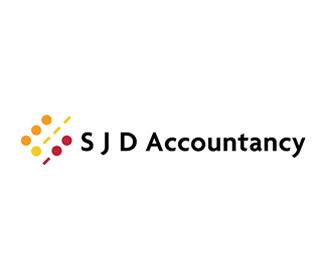
Builders risk cashflow problems & higher tax as HMRC clamps down on accounting errors
Whatever the truth of the matter, HMRC is becoming increasingly rigorous in ensuring compliance in the construction industry and is penalising a growing number of small builders for often quite minor mistakes.
According to data we obtained under the Freedom of Information Act, a growing proportion of builders are at risk of cashflow problems and paying more tax as HMRC clamps down on tax and accounting errors. The official figures show that in the most recent tax year 2,318 subcontractors in the construction industry had their Gross Payment Status – their right to be paid without deductions made for tax revoked by HMRC. This is the highest number in three years.
Subcontractors who are paid gross are subject to an annual compliance check. Over a quarter (28 per cent) of subcontractors who failed their annual compliance check lost their Gross Payment Status, up from 22 per cent in 2012/13.
The loss of Gross Payment Status can be severely damaging for builders, potentially resulting in higher tax, reduced cashflow, breach of contract with contractors and reduced opportunities to tender for work.
Subcontractors can apply for Gross Payment Status under the Construction Industry Scheme (CIS) administered by HMRC. The advantages for subcontractors of being registered for Gross Payment Status include reduced National Insurance contributions and the ability to offset legitimate business-related expenses against their tax liability at the end of each tax year.
While HMRC is becoming less forgiving of minor mistakes, such as filing a return a few days late or owing a relatively small amount of tax, the good news is that, in most cases, these mistakes are easy to rectify. Being fully compliant is quite straightforward, and given the damage losing Gross Payment Status can have on a business, it is worth spending a bit of time to ensure that the taxman is satisfied. At SJD Accountancy, we tell our clients to bear the following in mind:
Keep on top of deadlines and ensure that returns and taxes are filed and paid on time.
If you are facing difficulty paying tax, have a conversation with HMRC, who may be sympathetic if it is due to a late payment elsewhere in the supply chain. Far better to discuss with HMRC than simply pay tax late without any explanation.
Put money aside each month to cover tax. It is good practice to have a separate bank account for tax and as a rule of thumb to set aside 25 per cent of each month’s income for tax. Income over £41,866 will be taxed at 40%, which means you will need to set aside more.
The same goes for VAT. Transfer the VAT portion of your monthly income to the separate bank account as well, so that you have sufficient funds to cover quarterly VAT payments.
SJD clients are advised to keep all their receipts. Legitimate business expenses can be offset against your tax bill, and the VAT element can be reclaimed/deducted from your VAT bill. HMRC does not always check, but if they do and your records are inadequate, you may be deemed not fully compliant.
Subcontractors who lose their gross payment status for relatively minor mistakes can appeal the decision, but they will need to convince HMRC that the issue was an isolated error, which can be a time-consuming and costly process. Losing Gross Payment Status can be very damaging, but easily avoided. Keeping on top of your taxes can be a challenge on top of the day to day running of your business, which is why it is always advisable to seek professional advice if in doubt.
Latest news

9th April 2025
Insight Data: Smart spending - how targeted marketing offsets rising costs
As ‘Awful April’ lands, fenestration businesses must use data-driven marketing to maximise impact, cut waste and stay ahead, says Alex Tremlett, Insight Data’s commercial director…
Posted in Articles, Building Industry News, Building Products & Structures, Building Services, Doors, Glass, Information Technology, news, Posts, Research & Materials Testing, Windows
9th April 2025
Saniflo: Retrofit 2025 at the Building Centre
Saniflo is delighted to announce a six-month collaboration with the Building Centre as a Principal Partner for ‘Retrofit 2025 – What’s Stopping Us’.
Posted in Articles, Bathrooms & Toilets, Bathrooms, Bedrooms & Washrooms, Building Industry Events, Building Industry News, Building Products & Structures, Building Services, Case Studies, Drainage, Exhibitions and Conferences, Facility Management & Building Services, Innovations & New Products, Interiors, Pipes & Fittings, Plumbing, Restoration & Refurbishment, Retrofit & Renovation
9th April 2025
FIT Show Launches Comprehensive CPD Learning Programme - Registration Now Open!
FIT Show, the UK’s leading trade event for the window, door, flat glass, hardware, components, and roofing industries, has unveiled its extensive learning programme for the 2025 event.
Posted in Architectural Ironmongery, Articles, Building Industry Events, Building Industry News, Building Products & Structures, Building Services, Building Systems, Continuing Professional Development (CPD's), Doors, Exhibitions and Conferences, Glass, Glazing, Innovations & New Products, Posts, Restoration & Refurbishment, Roofs, Seminars, Timber Buildings and Timber Products, Training, Windows
8th April 2025
First look at industry speakers for GEO Business 2025
GEO Business, the UK’s premier geospatial event, is set to return to ExCeL London on 4 – 5 June 2025, bringing together the brightest minds in the industry.
Posted in Articles, Building Industry Events, Building Industry News, Building Products & Structures, Building Services, Exhibitions and Conferences, Information Technology, Innovations & New Products, Restoration & Refurbishment, Retrofit & Renovation, Seminars
 Sign up:
Sign up: